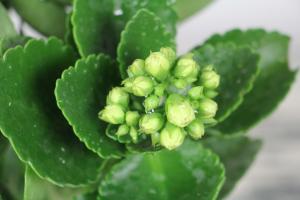Can I Plant Tomatoes, Eggplant, and Peppers Together?
Planting vegetables together is a smart and efficient way to maximize space and yield while promoting healthy growth. But, can you grow tomatoes, eggplants, and peppers together in the same garden bed?
Companion Planting
Companion planting is an ancient practice that involves planting two or more crops together to benefit each other. Tomatoes, eggplants, and peppers are all members of the nightshade family and can be planted together as companion crops, as they have similar needs and growth habits.
Soil Requirements
Tomatoes, eggplants, and peppers prefer well-draining soil that is rich in organic matter. Adding compost or aged manure to the garden bed before planting can provide the necessary nutrients for healthy growth. Avoid planting in soil that has been used to grow other nightshade crops within the past few years, as this can increase the risk of soil-borne diseases.
Sunlight and Water
Tomatoes, eggplants, and peppers all require full sun to grow and produce fruit. They also need regular watering to keep the soil consistently moist, but not waterlogged. Be sure to water deeply, so the roots have access to water and do not dry out.
Pest Control and Disease Prevention
Nightshade crops are prone to similar pests and diseases, so it is important to monitor the garden bed for signs of insect infestations or fungal diseases. Crop rotation is one effective method to prevent soil-borne diseases and pest infestations. Companion planting with herbs such as basil, parsley, or marigolds can also help repel pests and deter diseases.
Harvesting and Storage
Tomatoes, eggplants, and peppers all have different growing and harvesting times, so it is important to keep track of each plant's progress. Picking fruit when it is ripe helps to promote continuous production and prevents over-ripe fruit from attracting pests or decaying. Store harvested vegetables in a cool, dry, and dark place to prolong their shelf life.
Conclusion
Planting tomatoes, eggplants, and peppers together is a smart and efficient way to promote healthy growth and maximize space and yield. With proper soil preparation, adequate sunlight and water, pest control, and timely harvesting, you can enjoy a bountiful harvest of delicious nightshade vegetables from your garden bed.

 how many times do yo...
how many times do yo... how many planted tre...
how many planted tre... how many pine trees ...
how many pine trees ... how many pecan trees...
how many pecan trees... how many plants comp...
how many plants comp... how many plants can ...
how many plants can ... how many plants and ...
how many plants and ... how many pepper plan...
how many pepper plan...































